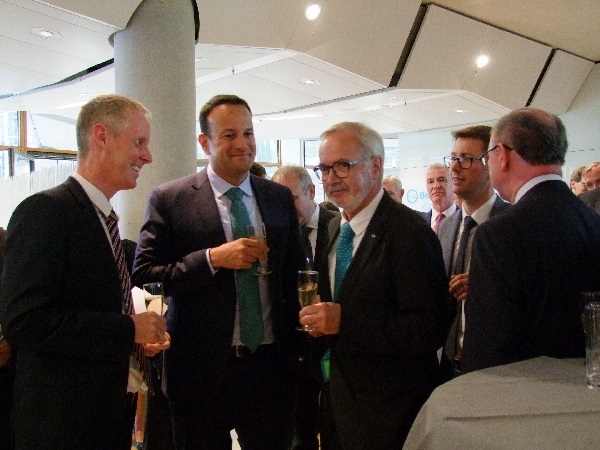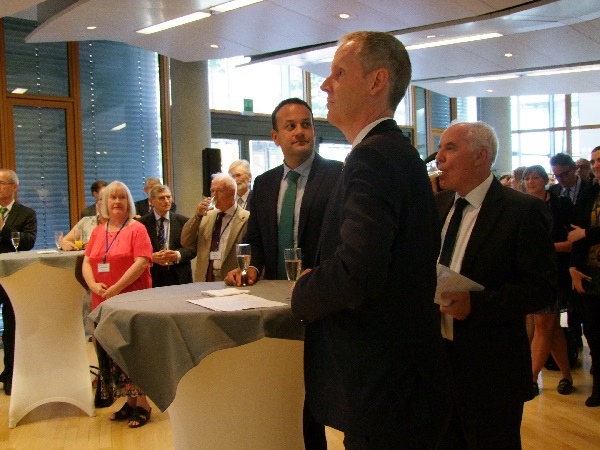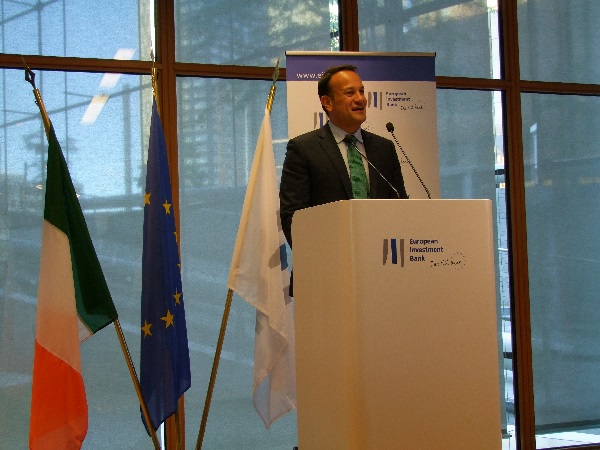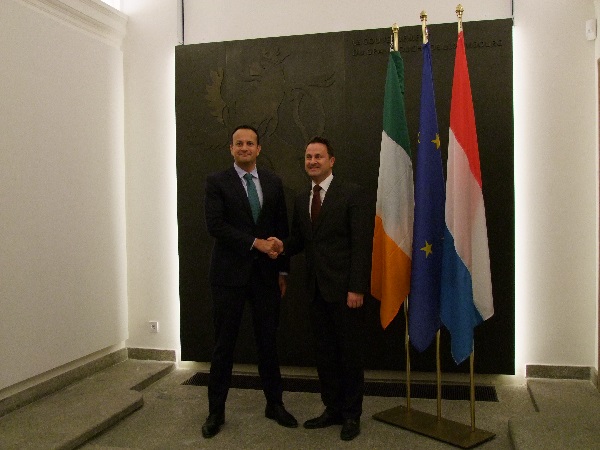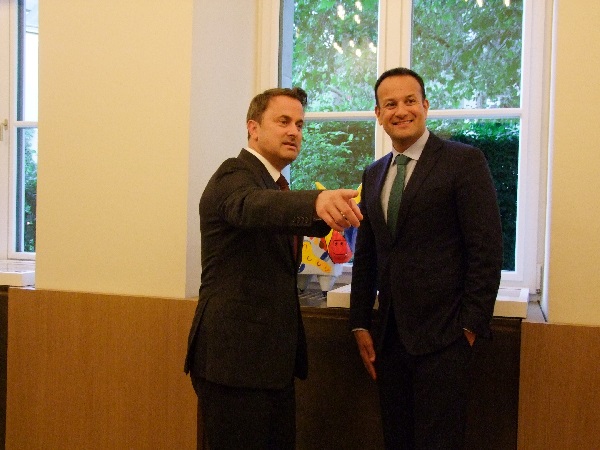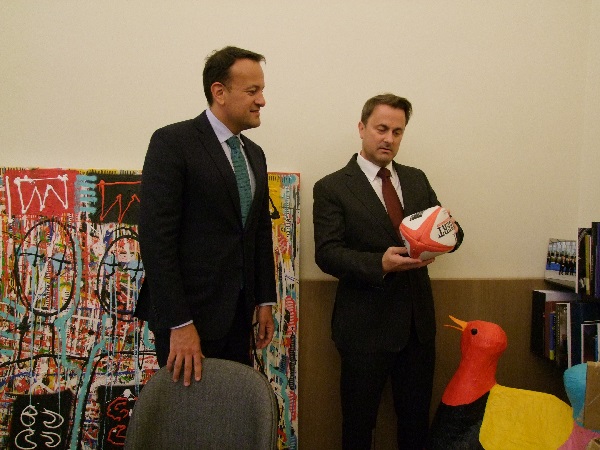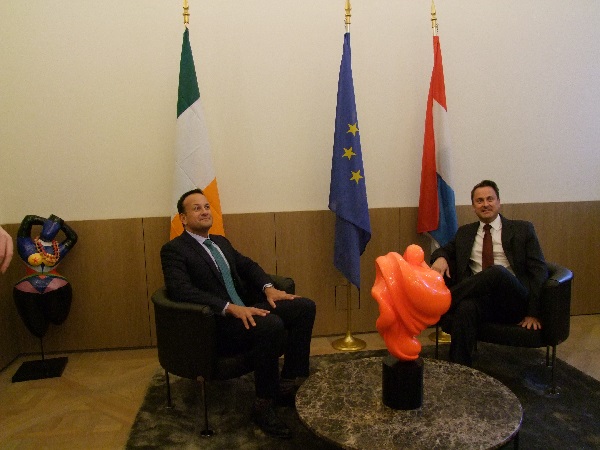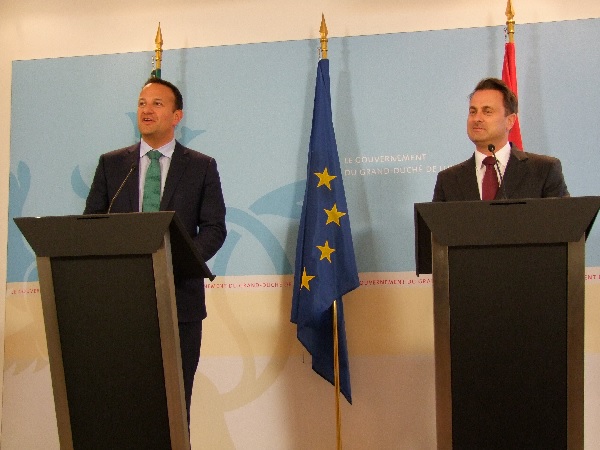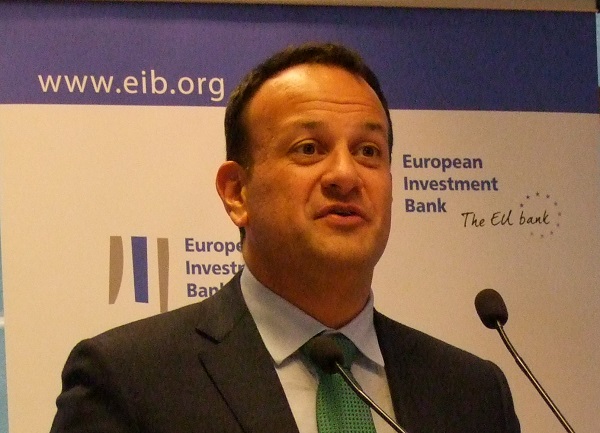 Taoiseach Leo Varadkar;
Credit: Jazmin Campbell
Taoiseach Leo Varadkar;
Credit: Jazmin Campbell
During his official visit to the Grand Duchy, Irish Prime Minister (“Taoiseach”) Leo Varadkar welcomed on Friday the European Investment Bank’s (EIB) largest ever transport investment in Ireland, before discussing Brexit and Ireland’s place in Europe with Luxembourg Prime Minister Xavier Bettel.
The Taoiseach (the title of Ireland’s Prime Minister) began his visit at the EIB headquarters in Luxembourg, the first such visit of any Irish head of state. There he discussed the EIB's support for investment in Ireland following the signing of a €350 million loan agreement between the DAA (previously Dublin Airport Authority) and the EIB to be invested into Dublin Airport. Indeed, this is the largest ever EIB investment in Irish transport and will be dedicated to improving passenger services at the airport.
In the words of EIB President Werner Hoyer, this loan "will further strengthen and facilitate transport between Ireland and the continent, improve security and aim for 100% of the vehicle fleet to be electric, and it will make travel easier for the 30 million passengers that use Dublin Airport each year". He added that "Ireland has been one of [the EIB's] strongest supporters" during the difficult context associated with Brexit, adding that the EIB will continue to support Ireland in years to come.
During his speech at a reception held at the EIB, the Irish Prime Minister highlighted the importance of European cooperation, as well as the transformation which Ireland has undergone since joining the EU in 1973. He began by highlighting the impact of Ireland's previous EIB loan for the Luas Cross City light trail system in Dublin "during the darkest period of [Ireland's] financial crisis". He went on to welcome the fact that Ireland is so well represented in the European institutions in Luxembourg with its people "very much flying the flag for Ireland, a country of only 5 million people but one that [...] is recognised around the world and around Europe as being something much greater than that".
Commenting on what the future holds, the Taoiseach confirmed that "Ireland's future is at the centre of Europe", as reaffirmed by his visit to Luxembourg and the European institutions. He went on to quote Luxembourg poet Michel Lentz: "Mir wëlle bleiwe wat mir sinn. We want to stay what we are", adding that "for Ireland that's us staying as an island at the centre of the world, at the heart of a common European home that we helped to build, connected to the world, open to trade, investment, talent and migration, committed to the United Nations, the multilateral order, peace-keeping, climate action and international development". In order to achieve this, the Irish Prime Minister emphasised the significance of the EIB transport loan in helping Ireland to "stay connected".
Following his visit to the EIB, Leo Varadkar met with his Luxembourg counterpart Xavier Bettel for an exchange on Luxembourg-Ireland relations and contemporary European affairs, particularly Brexit. During a press conference, Prime Minister Xavier Bettel began by highlighting his own special relationship with Ireland, having learnt English as an adolescent in Malahide (Ireland). The Luxembourg leader went on to emphasise the importance of upholding the Good Friday Agreement, not only for Ireland but for maintaining peace in Europe as a whole. Whilst he lamented the loss of the UK as "an important ally" post-Brexit, especially economically, Xavier Bettel added that this was nevertheless a chance to reinforce cooperation between Luxembourg and Ireland.
For his part, Leo Varadkar, who highlighted that this was his first visit to Luxembourg as Taoiseach, agreed that the two countries shared many common traits, not least because they are "small countries with big neighbours", and emphasised their strong political relationship.
In a Q&A session with the press, Chronicle.lu asked the Taoiseach about the Irish government's contingency plans in the event of a no-deal Brexit and the possibility of a united Ireland in the near future. In response, Leo Varadkar stated that Ireland's contingency plans were "very well developed", confirming that the Irish Government had been prepared for the possibility of a no-deal Brexit already on 31 March 2019. He added that early-July would see the release of an update on these developments. Nevertheless, the Taoiseach recalled his belief that "there is no such thing as a good Brexit" and that a no-deal Brexit would mean "damage limitation for Ireland".
Regarding the possibility of a united Ireland, he reminded that the Good Friday Agreement provides for a referendum on such a matter but maintained that now was not the right time, particularly in light of ongoing talks on power-sharing in Northern Ireland and the uncertainties associated with Brexit, concluding that "this isn't really something for now". Returning to the matter of Brexit, Leo Varadkar reiterated that this is "the decision of the UK", just as a no-deal would be "a British choice".
In response to a separate question regarding Brexit and bilateral agreements, the Luxembourg Prime Minister emphasised the EU's strength in solidarity and reminded that all EU competences would need to be "negotiated on the European level" with the UK. Leo Varadkar added that Ireland will be "in a much stronger position" to negotiate with international partners, such as China and the USA, as part of the EU27.
The Taoiseach will continue his Luxembourg visit tomorrow with a visit to the European Court of Justice (ECJ) before leaving on Sunday after the National Day celebrations.

